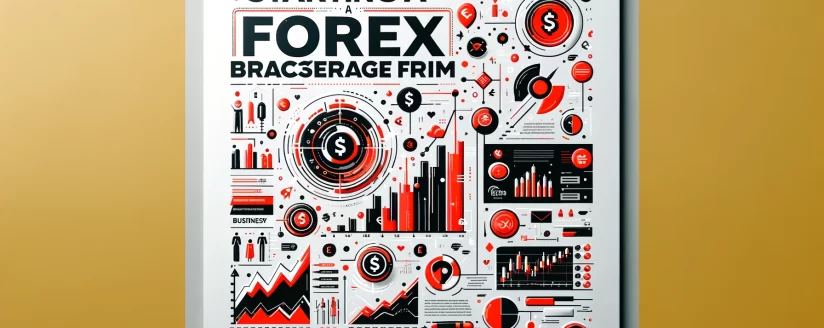An introducing broker (IB) has a direct working relationship with customers but does not directly perform trades. The actual transactions are accomplished by the brokerage (typically a futures commission merchant) with whom the introducing broker collaborates. Introducing brokers bring the potential audience in, provide support, services and charge a fee for every trade these clients execute.
What are the key responsibilities of IBs?
An Introducing Broker (IB) seeks and refers new participants to firms through offering and advertising tools, services and trading platforms suitable for all investors such as:
- managing a portfolio of a client or a trading community;
- trading education and tutoring;
- seminars and webinars;
- signals, investment strategies and financial consulting;
- local representatives offices and exchangers;
- portfolio and money management;
- other events and platforms for customers.
The customer should register an account in the trading system using an IB link in order to be recognized as an IB’s client. Once the referred customers top up their personal profiles and start trading, introducing brokers will gain money (commission) according to the trader’s performance.
Introducing brokers are interested in keeping their clients trading for as long as possible because the more they trade, the higher IB’s income will be.
Do not Confuse IBs With Affiliates
Yes, it sounds like an affiliate program, but they have different roles in introducing brokers. An affiliate participant can make a website or use an affiliate link and bring clients to a brokerage firm. Yes, it is possible to upgrade your affiliate account and work as an IB, but their key responsibility is marketing.
As an IB, you would be providing real services to the customers you refer. An IB may bring in clients through marketing, but they take it a step further and provide services and consultation. An introducing broker (IB) can create an in-depth, long-term relationship with clients. This is a win-win situation for both the IB and the brokerage because the client will trade through the brokerage, and the IB will receive commissions for these trades.
Introducing brokers will usually have to provide services to the clients they have referred. Affiliates are less involved in the services of the broker firm, while IBs use these services as a foundation for the partnership.
Benefits of introducing brokers
If you frequently trade on the commodity market and your IB is giving you sound recommendations for trading, negotiate a fair price. At the end of the day, an IB, like the FCM, is there to make money and will negotiate price based on your account size, trading volume, level of assistance needed and the specific markets you will be trading.
Investing is hard work, taking a great deal of research, energy and time. Trading futures can be even harder, as it may present complexities to the average investor that mainstream products like stocks and equities do not. That being said, a good IB can make the difference in many aspects, as they are your bridge to trading futures and commodities.
Who can be an IB?
There are practically no restrictions for those who want to become an Introducing Broker. Whether you are a company or an individual, you can become an IB. You do not have to be a professional trader, nor do you need to obtain any specific license or certificates.
Do I need a license?
Regulations governing introducing brokers or IBs vary widely. Different countries have different regulatory frameworks.
European and the UK requirements
If you are in Europe or the UK, there is no need to be licenced.
American regulatory framework
Regarding the US, it is important for introducing brokers to be a member of the National Futures Association.
Firms, as well as individuals, are required to register with the National Futures Association unless they are already registered as an Associated Person, Futures Commission Merchant, etc. Additionally, registration with the National Futures Association is not required if the company or a person is not an American resident. You do not need to have a licence in the National Futures Association if you have non-U.S. clients only.
How to become an introducing broker?
Pay close attention to the basics
To get straight to the question, you do not require much to start your own IB business. First, you will need to have a platform, which is something nearly every business must have these days.
After you have set up a website, you should also incorporate a new business entity. In addition, you will need to set up a bank account in order to make and receive payments.
Create your marketing plan
Think of what initially attracted you to the market. Were you trading stocks but looking for something different? Was the generous leverage available in the FX market more interesting for you? Were you looking to develop your own trading algorithm or EA? Whatever it was that brought you to the FX market, remember that others share your same passion and make that your edge. We also suggest taking advantage of the many online communities and groups that have popped up over the years. By browsing through online forums, Facebook, or LinkedIn, you will find plenty of areas where traders are gathering. Try to form a one-on-one relationship with some of the group or forum members to find out what they are looking for in a broker and what they are afraid of (like the risk of loss). It is a good first step in growing your business. When growing your Introducing Broker business, do not forget about local groups and communities that may be interested in learning more about your business offering.
Build your reputation
It is important to note that popular brokerages take introducing brokers very seriously and pay close attention to picking them up. If you want to collaborate with reputable firms like futures commission merchants and traders, you have to build a brilliant reputation and show your advantages to stand out from the crowd.
Focus on the local trading community
You can most likely find several meet up groups or clubs that would be interested in learning more about the foreign exchange market. A presentation to a local investment group, automobile club or sports group could be an excellent way to build a grassroots foundation for your IB business.
Expertise and boost your skills
The more you learn about the FX market, the more effective you will operate as an IB. Even though the forex market is still fairly new, there is a plethora of information available on the subject, most of which you can obtain for free. Our suggestion is, to begin with, the basic terminology surrounding the market and then move on to more specific subjects that pertain to trading. We strongly suggest opening a live trading account as well so you can better understand how the industry works. A demo account is useful for learning market terminology, but you will never fully understand the psychology of the market until you trade with real funds. The experience you will gain will be invaluable, and no doubt, greatly assist you in building your introducing broker business.










